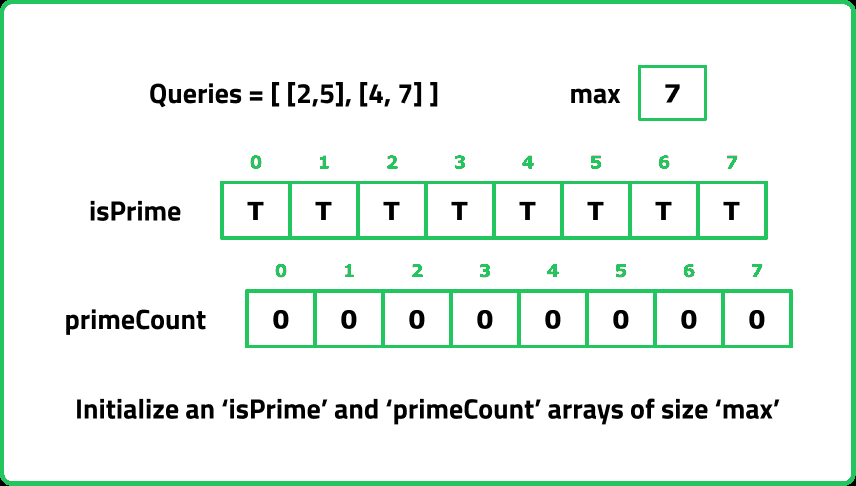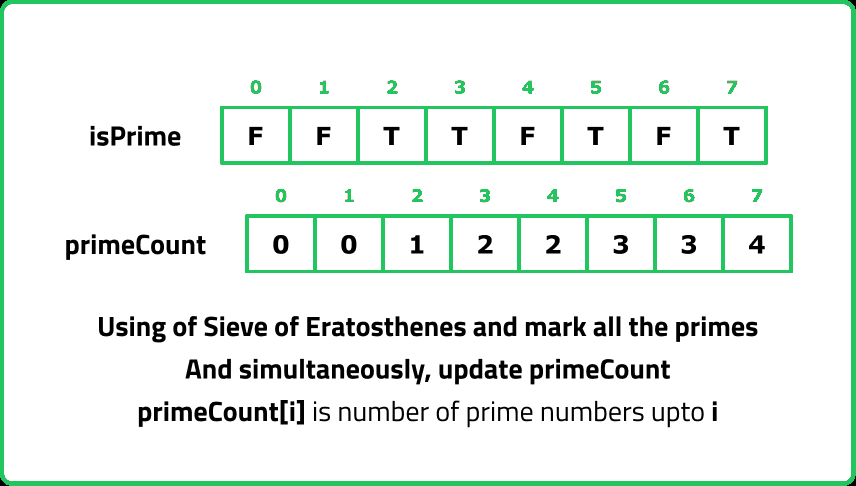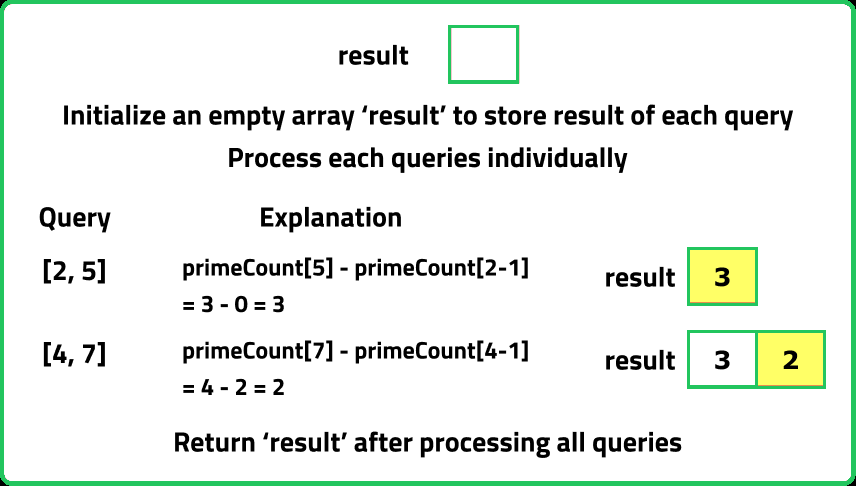Count primes in range L to R
Maths
Sieve of Eratosthenes
Hard
You are given an 2D array queries of dimension n*2.
The queries[i] represents a range from queries[i][0] to queries[i][1] (include the end points).
Return the count of prime numbers present in between each range in queries array.
Examples:
Input : queries = [ [2, 5], [4, 7] ]
Output : [3, 2]
Explanation : The range 2 to 5 contains three prime numbers 2, 3, 5.
The range 4 to 7 contains two prime numbers 5, 7.
Input : queries = [ [1, 7], [3, 7] ]
Output : [4, 3]
Explanation : The range 1 to 7 contains four prime numbers 2, 3, 5, 7.
The range 3 to 7 contains three prime numbers 3, 5, 7.
Input : queries = [ [1, 10], [10, 20] ]
Constraints
- 1 <= n <= 105
- 1 <= queries[i][0] <= queries[i][1] <= 105
Hints
- A brute-force approach would check each number in the range [L, R] for primality using trial division, resulting in O(n√m) complexity (where m is the largest number in queries). This is inefficient for large R.
- "A better approach is the Prefix Sum of Primes using the Sieve of Eratosthenes: Precompute all primes up to max(R) using the Sieve of Eratosthenes (O(m log log m)). Build a prefix sum array where prime_count[i] stores the count of primes from 1 to i (O(m))."
Company Tags
Reddit
Zomato
Salesforce
Zynga
Target
American Express
Lyft
Docker
Walmart
Unity Technologies
eBay
Mastercard
JPMorgan Chase
Bain & Company
Twilio
Byju's
Optum
Freshworks
Siemens Healthineers
PwC
Broadcom
Ubisoft
Robinhood
Texas Instruments
Wayfair
Google
Microsoft
Amazon
Meta
Apple
Netflix
Adobe


